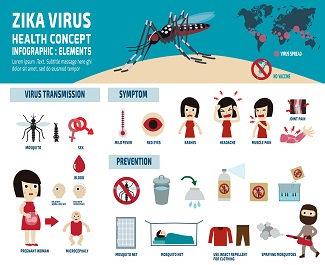On the average, a woman will lose about 100 hairs a day, but many new mothers are shocked to find that they lose more hairs than usual in the first few months after giving birth. Some of them blame this on the change of sleeping pattern due to the arrival of their little ones. Some even suspect that it is related to breastfeeding. In fact, this excessive hair loss has nothing to do with the change of the sleeping pattern of the new mother or nursing of the little ones.
Why hair loss happens after birth delivery?
First and foremost, it is normal for new mothers to lose more hair than usual and they are not going to become bald.
On the average, about 10% of our hair is in a resting stage. These hairs may fall out when you comb or shampoo it. These hair losses will be replaced by the growth of new hairs.
During pregnancy, ovaries and placenta will produce hormone estrogen which steps up the blood circulation, helps the uterus grow, maintains the uterine lining and has many other essential functions that are important to support the growth of the growing fetus and expecting mother.
Other than these critical functions, the increased level of estrogen reduces the percentage of hair in the resting stage. The results are there will be fewer hair losses each day during pregnancy and the hairs of the expecting mothers will also look thicker.
After birth delivery, the hormone estrogen level in new mothers will tumble and more hair will enter the resting stage. As a result, the new mother will experience more hair loss than usual.
When will postpartum hair loss start?
On the average, new mothers will see more hair losses at about three months after giving births. There are some new mothers experiencing this postpartum hair loss earlier at one month after birth delivery, some may experience it later at six months after giving birth.
When will postpartum hair loss end?
On the average, hair losses will be back to normal rate when your newborn reaches six months to one year old.
How to reduce hair loss after birth delivery?
1. Vitamin supplements
After birth delivery, new mothers can take vitamin supplements which should include vitamin E, vitamin C, B-vitamins, zinc and biotin. Not only these are beneficial to the overall health of the new mothers, these vitamins and minerals can also help to reduce hair fall after birth delivery.
2. Biotin supplement
Biotin is actually a member of vitamin B family. This vitamin plays an important role in the synthesis of hair proteins like keratin. This can help to reduce hair loss after birth delivery.
Eggs, almonds, peanut and whole grain are all good source of biotin.
3. He Shou Wu (a Chinese herb)
In traditional Chinese medicine, He Shou Wu has been commonly used to treat hair loss. Its rich content of zinc and anti-inflammatory property is helpful in fighting hair loss. He Shou Wu is now used in shampoo and some health supplement products. You may be able to find related products in local supermarkets or Eu Yan Seng.
Other measures that can be taken
First, you can have a new hair cut. It is time to get a different hairstyle that will suit your thinner hair.
Second, you can try color. Coloring hair is a good way to give a hair a new life. Be mindful about this if you are breastfeeding.
Lastly, you can consider wearing hair ornaments like headbands, scarves, and bandanas. These ornaments are stylish ways to disguise hair loss.



